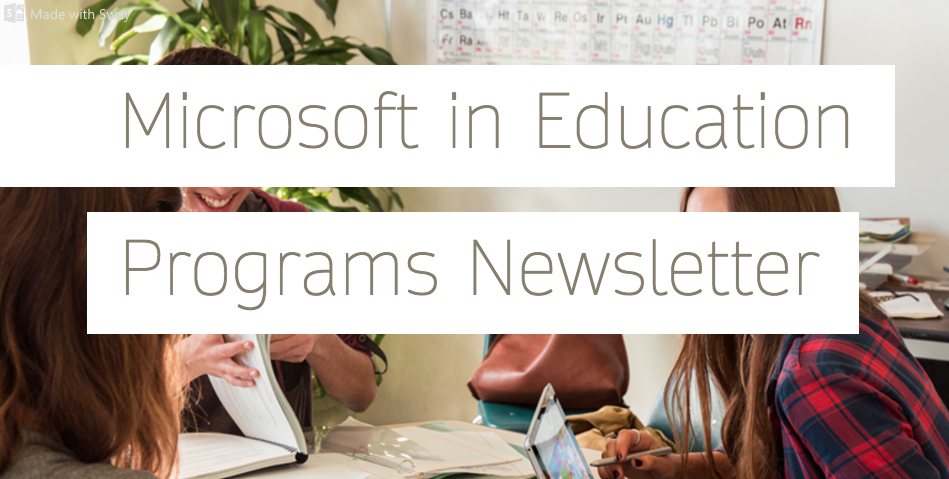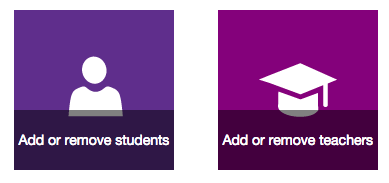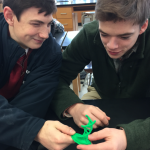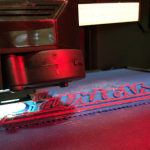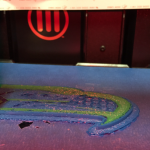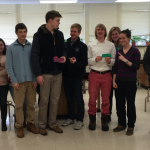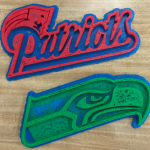Looking to learn more about Sway, Microsoft’s presentation platform, as well as how Microsoft products can be used in education? Check out this Sway:
All posts by Josh Seamon
Adjusting Mic Sensitivity in Windows 8
If your recorded sound is too loud and full of static, it’s quite likely that your mic sensitivity is set too high. Follow these steps to adjust your mic sensitivity in Windows 8.
OneNote Resources
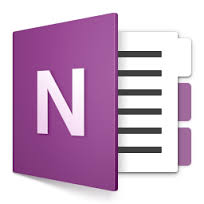 I just came across a great list of OneNote resources:
I just came across a great list of OneNote resources:
OneNote Class Notebook app
OneNote for Teachers website
OneNote in Education blog
Real examples from students, teachers & schools (Web)
Sample Class Notebook (Web)
Real examples from students, teachers & schools
Download Class Notebook Samples
Digital Ink @ MassCUE 2015
On Thursday, 10/22, the Williston Academic Technology Team of Kim Evelti, Carey Baldwin, and Josh Seamon gave a presentation at MassCUE 2015 on digital ink in the classroom. We were very happy with how the presentation went!
You can view and download our presentation slides right here.
The @WillistonNS Academic Tech Team just gave a fantastic digital ink presentation at #MassCUE15! pic.twitter.com/sIxkEGXqyy
— Josh Seamon (@MrJoshSeamon) October 22, 2015
Exploring the Impact of Digital Ink in the Classroom
Last week Andrew Shelffo and I were guest speakers on a webinar that explored the impact of digital ink in the classroom. Here are some resources from that presentation:
IDC recently conducted a K-12 teacher survey on their use of technology in the classroom, and specifically their use of a stylus-based device as a teaching tool. Of the teachers using a digital inking device, 90 percent reported improved quality of curriculum materials, and 67 percent said it increased class preparation time.
With an ever-increasing range of classroom device options, school leaders should consider devices that will most directly support authentic and efficient student-teacher engagement and reduce time spent on nonteaching-related activities. In this webinar, you’ll learn about teacher-reported benefits on using ink in the classroom and how it enables instant student feedback at the “teachable moment.” Hear how using a device with an active stylus provides the personalization and flexibility of a pen and paper, and the immediacy of instant messaging to open and maintain personal connections at the precise moment students would be receptive to feedback, thus enabling better learning.
OneNote Class Notebook Update
Microsoft just announced a few updates to the OneNote Class Notebook system, including the ability to remove students and teachers from notebooks!
Remember that you can access the Class Notebook system directly using this link: onenote.com/classnotebook
Class notebook creator tips: Round 1
Here are a few good things to know as you dive into using OneNote notebooks created using the Class Notebook Creator:
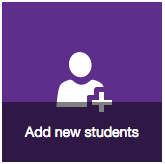 You need to add students to your notebook through the Class Notebook Creator web interface by clicking on “Add new students”, not through the OneNote program. If you share your class notebook with a student through the OneNote program, you can end up giving a student view or edit access to ALL of the sections, including those of other students. If this is something you’ve done already with a notebook you created with the Class Notebook Creator, it’s recommended that you un-share the notebook with all of your students and then add the students through the “Add new students” button on the Class Notebook Creator website.
You need to add students to your notebook through the Class Notebook Creator web interface by clicking on “Add new students”, not through the OneNote program. If you share your class notebook with a student through the OneNote program, you can end up giving a student view or edit access to ALL of the sections, including those of other students. If this is something you’ve done already with a notebook you created with the Class Notebook Creator, it’s recommended that you un-share the notebook with all of your students and then add the students through the “Add new students” button on the Class Notebook Creator website.- When students configure their Surfaces for the first time, two versions of OneNote are loaded, one that launches in the start menu and one that launches on the desktop. We (faculty) typically use the version on our desktop. The default on the students’ machines, however, may be set up as the start menu version. If you see a student who hasn’t properly opened OneNote in the desktop version, they can change the default to the desktop version easily using these instructions.
- Lots of helpful instructional documents are online on the Support Docs page.
- You can access the notebook creator website in a couple ways:
- While logged into any Office 365 website, click on the “waffle” icon in the upper left and then the purple “Class Notebook” tile:
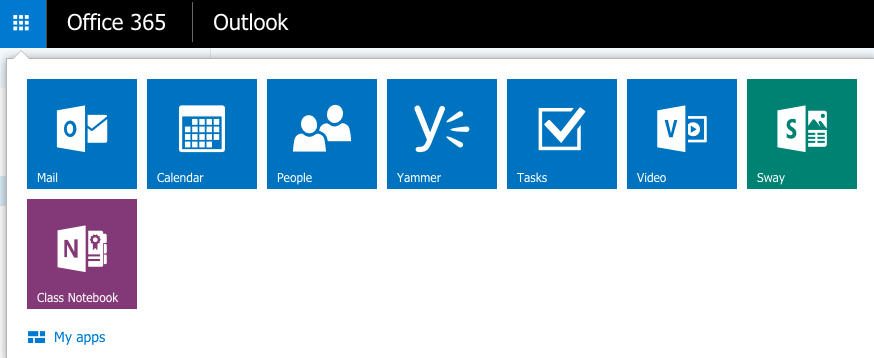
- You can go directly to the Class Notebook Creator website by logging into www.onenote.com/classnotebook.
- While logged into any Office 365 website, click on the “waffle” icon in the upper left and then the purple “Class Notebook” tile:
- You have successfully logged into the Class Notebook Creator website when you see this screen:
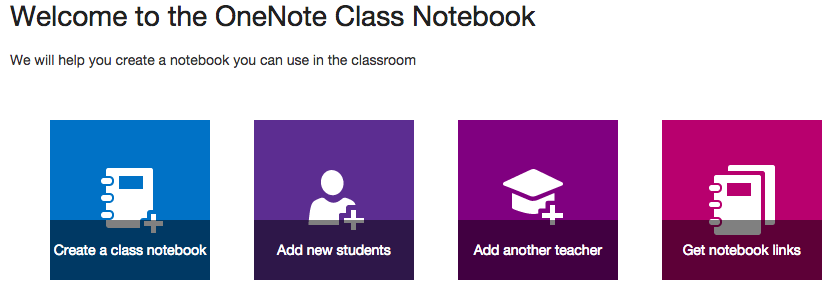
- If you create a new section or section group in a notebook created with the Class Notebook Creator, all of the students in your class will be able to see that folder. If you’d like to create a notebook section that students can’t see, you have two options:
- Create an entirely separate notebook on your Surface in OneNote.
- Add a password to the section you’d like to keep private. Please note that this method is not recommended as we have had some stability issues with password protected sections in the past.
- It is possible to put section groups into section groups. You can use this maneuver to put all of your student section groups into one section group, possibly called “Student Notebooks”, or whatever you’d like to name the section group. If you do this, you’ll be able to collapse all of your students notebooks and not have them all listed out all of the time:

Curricular Technology Initiative (CTI)
You can read more about Williston’s CTI right here.
Here’s a view into my use of technology in the classroom:
MakerBot fun in the Science department!
This just came in from Ms. Lawson over in the Science department:
Genetics class has been experimenting with the 3D printer this trimester. We have used the Makerbot software and Makerbot Replicator to print a model of DNA, a bust of Einstein, a water molecule, and more. With the Super Bowl approaching, we thought it would be a great opportunity to test out different colors and print designs for both teams. Go Seahawks!
Outlook released for iOS and Android
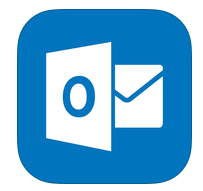 Some exciting news just came my way via Mr. Lorenzatti:
Some exciting news just came my way via Mr. Lorenzatti:
Microsoft has released Outlook for iOS (iphone/ipad) and has a preview version for Android:
You can read more about it here:
http://blogs.office.com/2015/01/29/deeper-look-outlook-ios-android/Here is the link to iOS in the iTunes store:
https://itunes.apple.com/app/id951937596Here is the link to the Android Preview:
https://play.google.com/store/apps/details?id=com.microsoft.office.outlookNOTE: if you’re using the Microsoft Office application on iOS (iPhone, iPad), the current Outlook app is a link to the web client. The new app is not.


